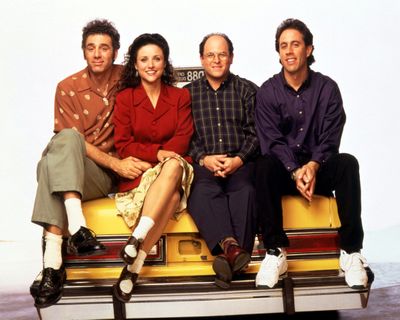Time Warner’s tumble opens possibilities

Shares of entertainment giant Time Warner (NYSE: TWX) tumbled 19 percent in August, due to a broad-based sell-off in media stocks. This presents a buying opportunity for long-term investors.
Time Warner’s last quarter was strong, despite being a rough period for its rivals. Revenue increased 8 percent year over year, while adjusted operating income jumped 15 percent and adjusted earnings per share were up 28 percent.
Perhaps most important, Time Warner’s cable properties performed well in the quarter as operating income from its Turner networks increased 20 percent. HBO continued to grow and improve on its competitive position, though operating income fell, primarily due to costs associated with the launch of its streaming service, HBO Now.
Of all the media stocks, Time Warner may be in the best position. Its Warner Bros. unit brings in syndication revenue from shows such as “Seinfeld” and “The Big Bang Theory,” and HBO’s seems promising, as the value of its quality content continues to grow. HBO and its sister network Cinemax received 131 Primetime Emmy nominations, and the company set records for viewership with the fifth season of “Game of Thrones.” Turner Networks, meanwhile, continues to thrive, benefiting from lower programming costs and the licensing of original content to Hulu.
With a relatively low price-to-earnings (P/E) ratio near 16 and a dividend yielding around 2 percent, Time Warner is worth consideration for your portfolio.
Ask the Fool
Q: What’s the Dow Jones industrial average? – B.L., Santa Maria, California
A: “The Dow,” often seen as representing the entire stock market, is actually an index of just 30 companies. It started in 1896 with 12 companies, and of those, only General Electric remains in the current 30. Other charter members included U.S. Leather (dissolved in 1952), U.S. Rubber (became Uniroyal, now part of Michelin), American Tobacco (broken up due to antitrust concerns), Laclede Gas (still around), and Tennessee Coal, Iron & Railroad (absorbed by U.S. Steel).
An interesting (and not very good) thing about the Dow is that it’s price-weighted, so that stocks with high prices influence it far more than other huge companies that simply have lower stock prices. For example, Goldman Sachs, recently priced near $180 per share, has about twice the influence in the index as Johnson & Johnson (priced near $90), even though J&J’s market value is more than three times larger.
The components don’t change too often, but there has been a lot of shuffling over time. Removed companies include Alcoa, Bank of America, Hewlett-Packard, AT&T, Bethlehem Steel, General Motors, Citigroup, Westinghouse Electric, Woolworth, Union Carbide, Sears, Eastman Kodak and International Paper. Companies added in recent years include Apple, Goldman Sachs, Nike and Visa.
The Dow first closed above 1,000 in 1972, 3,000 in 1991, 10,000 in 1999 and 15,000 in 2013. After topping 18,000 earlier this year, it has recently been near 16,000.
Q: What’s collateral? – J.P., Bay City, Michigan
A: It’s property or assets used to secure a loan. With a mortgage, for example, the home itself is the collateral, and you can lose it if you default on the loan. Some debt, such as credit-card debt, is unsecured.
My dumbest investment
One of my dumbest investments was in RINO International, a Chinese wastewater treatment equipment maker that was later accused of fraud. I bought in around $18 per share in late 2010, only to see the stock crash when various allegations were made. I sold for $2.86 per share. – I.B., New York City
The Fool responds: Ouch. One lesson here is to be careful with penny stocks – those trading for less than about $5 per share. RINO wasn’t a penny stock when you bought it, but it was two years earlier. It surged from $3.50 per share to about $28 throughout 2009.
Much of its troubles began when research firm Muddy Waters claimed that while RINO’s regulatory filings in China listed 2009 revenue of $11 million, it reported $193 million in filings with the U.S. Securities and Exchange Commission. Waters alleged that some companies claimed by RINO as customers denied buying from RINO. Investigations ensued, and RINO eventually admitted that at least two of its contracts were fictitious. The company was delisted from the Nasdaq.
Another lesson here is to be careful investing in Chinese companies and other non-U.S. enterprises. Laws, regulations and disclosure requirements in the U.S. are among the strongest in the world.